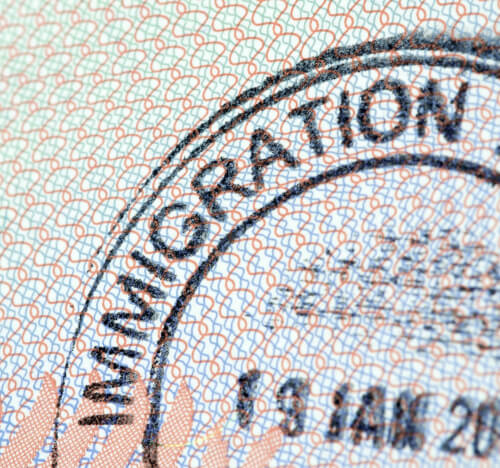Immigration Updates – August 2024
Immigration / 22 August 2024

Immigration New Zealand (INZ) has continued to make or propose significant changes in the immigration space including in relation to the Accredited Employer Work Visa (AEWV) scheme. We set out some of the most recent updates below:
Key Fee Changes
INZ has announced significant increases in application fees across the board effective from 1 October 2024. A link to the full table confirming application fee increases can be found here, and some key changes are highlighted below.
Resident Visas
- Skilled Migrant Category and Straight to Residence: $4,290 → $6,450
- Partnership Residence Visa: $2,750 → $5,360
- Dependent Child Residence Visa: $2,750 → $3,230
- Active Investor Plus Category: $7,900 → $27,470
- Parent Retirement: $5,260 → $12,850
Temporary Visas:
- Accredited Employer Work Visa (AEWV): $750 → $1,540
- Student Visa: $375 → $750
- Post Study Work Visa: $700 → $1,670
- Partnership-Based Work Visa: $960 → $1,630
Support for Pacific Visas & Refugees: No fee increases for Recognised Seasonal Employer, Pacific Access Category, and Samoan Quota visas. Refugee Quota and related programmes will continue to be funded.
Visa applications submitted before the fee changes take effect on 1 October 2024 will be processed against current application fees (not the increased application fee).
New temporary visa option for some seasonal workers
INZ has opened a new subcategory of the Specific Purpose Work Visa to provide short-term relief to employers in industries with upcoming seasonal peaks.
In summary the requirements for this category are as follows:
- Applications must be submitted on or before 31 March 2025
- The role must: pay at least $29.66 per hour, guarantee at least 30 hours per week, commence before 31 May 2025, be extended by an accredited employer, advertise the role for two weeks on a national job advertisement platform and the employment agreement must be compliant with New Zealand’s employment laws.
- The worker must have at least four months of relevant work experience.
- The role the person will be undertaking in New Zealand must meet the definition of seasonal activity below:
- The work must be completed during a peak of activity for an industry, that occurs in response and is impacted by weather or climate changes and at a specific time in the year; and
- Only take place during part of the year, for a period of less than nine months.
- The definition excludes:
- roles related to the planting, maintaining, harvesting and packing of crops in the horticulture and viticulture industries;
- roles not directly related to the seasonal activity (for example, a barista or waitperson working in a ski field restaurant);
- people who come into New Zealand to fill permanent roles even if that is prompted by a seasonal peak (for example, dairy farm workers who enter New Zealand ahead of the calving season); and
- foreign crew of fishing vessels.
New requirement for cargo ship crew and passengers
From 1 April 2025, a new requirement will be implemented that requires foreign cargo ship crew and passengers to hold a New Zealand electronic Travel Authority (NZeTA) before travelling to New Zealand. The change includes requiring crew members of foreign ships authorized by the Minister of Transport to carry coastal cargo.
Targeted review of AEWV scheme
The government will be completing a targeted consultation on the AEWV scheme to align the scheme with the priorities below:
- Rebuilding the economy and improving New Zealand’s productivity
- Delivering better public services and protecting the integrity of the border
- Attracting top talent and skills, and
- Advancing international priorities, particularly in the Pacific.
The consultation will likely run from September to November 2024 and will likely explore substantial changes to the AEWV scheme.
RSE cap increase and changes
INZ have announced an increase to the RSE cap for the 2024 to 2025 season to 20,750.
The following changes have also been made to the scheme:
- Employers must pay RSE workers an average of 30 hours a week over four weeks.
- RSE workers will now be granted a visa that will allow them to leave and return to New Zealand during a season.
- RSE workers will no longer have to be screened for HIV.
- The pause on accommodation cost increases will be lifted and employers will be able to increase rents modestly.
- RSE workers will be able to undertake training and skills development not directly related to their role.
- There will be more flexibility for RSE workers to move between employers and regions.
- Timor-Leste will be included in the scheme.
- The requirement to pay RSE workers at least 10 percent above the minimum wage will only apply to experienced workers returning for their third and subsequent seasons.
Message for Employers
The immigration space continues to change. While application fee savings can be made if applications are submitted before 1 October 2024, we recommend obtaining advice to check if requirements are met before applications are submitted. We also recommend carefully planning applications in light of the possibility of changes in future. Our team of specialists can help with bespoke and practical advice and solutions on navigating the tricky immigration landscape. Please do not hesitate to contact us if you need help.
Disclaimer: We remind you that while this article provides commentary on employment law, health and safety and immigration topics, it should not be used as a substitute for legal or professional advice for specific situations. Please seek legal advice from your lawyer for any questions specific to your workplace.

